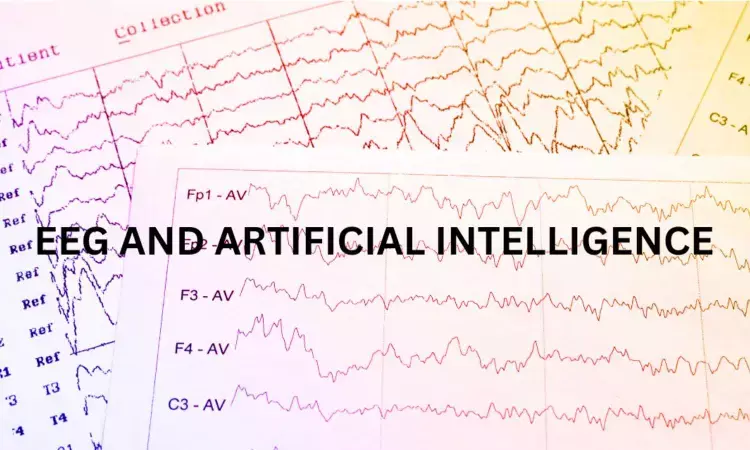- Home
- Medical news & Guidelines
- Anesthesiology
- Cardiology and CTVS
- Critical Care
- Dentistry
- Dermatology
- Diabetes and Endocrinology
- ENT
- Gastroenterology
- Medicine
- Nephrology
- Neurology
- Obstretics-Gynaecology
- Oncology
- Ophthalmology
- Orthopaedics
- Pediatrics-Neonatology
- Psychiatry
- Pulmonology
- Radiology
- Surgery
- Urology
- Laboratory Medicine
- Diet
- Nursing
- Paramedical
- Physiotherapy
- Health news
- Fact Check
- Bone Health Fact Check
- Brain Health Fact Check
- Cancer Related Fact Check
- Child Care Fact Check
- Dental and oral health fact check
- Diabetes and metabolic health fact check
- Diet and Nutrition Fact Check
- Eye and ENT Care Fact Check
- Fitness fact check
- Gut health fact check
- Heart health fact check
- Kidney health fact check
- Medical education fact check
- Men's health fact check
- Respiratory fact check
- Skin and hair care fact check
- Vaccine and Immunization fact check
- Women's health fact check
- AYUSH
- State News
- Andaman and Nicobar Islands
- Andhra Pradesh
- Arunachal Pradesh
- Assam
- Bihar
- Chandigarh
- Chattisgarh
- Dadra and Nagar Haveli
- Daman and Diu
- Delhi
- Goa
- Gujarat
- Haryana
- Himachal Pradesh
- Jammu & Kashmir
- Jharkhand
- Karnataka
- Kerala
- Ladakh
- Lakshadweep
- Madhya Pradesh
- Maharashtra
- Manipur
- Meghalaya
- Mizoram
- Nagaland
- Odisha
- Puducherry
- Punjab
- Rajasthan
- Sikkim
- Tamil Nadu
- Telangana
- Tripura
- Uttar Pradesh
- Uttrakhand
- West Bengal
- Medical Education
- Industry
SCORE-AI achieved diagnostic accuracy similar to human experts in EEG diagnosis: JAMA

Electroencephalography (EEG) is most reliable diagnostic tool as it provides essential information to aid diagnosis and classification of epilepsy, important for therapeutic decision-making however requires special expertise unavailable in many regions of the world.
Researchers aimed to develop and validate an AI model (Standardized Computer-based Organized Reporting of EEG–Artificial Intelligence [SCORE-AI]) with the ability to distinguish abnormal from normal EEG recordings and to classify abnormal EEG recordings into categories relevant for clinical decision-making: epileptiform-focal, epileptiform-generalized, nonepileptiform-focal, and nonepileptiform-diffuse.
The diagnostic study published in JAMA Neurology, they found that an AI model (SCORE-AI) separated normal from abnormal recordings then classify abnormal recordings as epileptiform-focal, epileptiform-generalized, nonepileptiform-focal, or nonepileptiform-diffuse with a diagnostic accuracy similar to that of human experts.
The multicenter diagnostic accuracy study, a convolutional neural network model, SCORE-AI, was developed and validated using EEGs recorded between 2014 and 2020. A total of 30 493 recordings of patients referred for EEG were included into the development data set annotated by 17 experts. Patients aged more than 3 months and not critically ill were eligible. The SCORE-AI was validated using 3 independent test data sets: a multicenter data set of 100 representative EEGs evaluated by 11 experts, a single-center data set of 9785 EEGs evaluated by 14 experts, and for benchmarking with previously published AI models, a data set of 60 EEGs with external reference standard.
The key findings of the study are
• The characteristics of the EEG data sets include development data set (N = 30 493; 14 980 men), multicenter test data set (N = 100; 61 men,), single-center test data set (N = 9785; 5168 men) and test data set with external reference standard (N = 60; 27 men).
• The SCORE-AI achieved high accuracy, with an area under the receiver operating characteristic curve between 0.89 and 0.96 for the different categories of EEG abnormalities, and performance similar to human experts.
• Benchmarking against 3 previously published AI models was limited to comparing detection of epileptiform abnormalities.
• The accuracy of SCORE-AI (88.3%; 95% CI, 79.2%-94.9%) was significantly higher than the 3 previously published models (P < .001) and similar to human experts.
Jesper Tveit, PhD and team concluded that “In this study, SCORE-AI achieved human expert level performance in fully automated interpretation of routine EEGs. Application of SCORE-AI may improve diagnosis and patient care in underserved areas and improve efficiency and consistency in specialized epilepsy centers.”
Reference: Tveit J, Aurlien H, Plis S, et al. Automated Interpretation of Clinical Electroencephalograms Using Artificial Intelligence. JAMA Neurol. Published online June 20, 2023. doi:10.1001/jamaneurol.2023.1645.
MSc. Neuroscience
Niveditha Subramani a MSc. Neuroscience (Faculty of Medicine) graduate from University of Madras, Chennai. Ambitious in Neuro research having worked in motor diseases and neuron apoptosis is interested in more of new upcoming research and their advancement in field of medicine. She has an engrossed skill towards writing and her roles at Medical dialogue include Sr. Content writer. Her news covers new discoveries and updates in field of medicine. She can be reached at editorial@medicaldialogues.in
Dr Kamal Kant Kohli-MBBS, DTCD- a chest specialist with more than 30 years of practice and a flair for writing clinical articles, Dr Kamal Kant Kohli joined Medical Dialogues as a Chief Editor of Medical News. Besides writing articles, as an editor, he proofreads and verifies all the medical content published on Medical Dialogues including those coming from journals, studies,medical conferences,guidelines etc. Email: drkohli@medicaldialogues.in. Contact no. 011-43720751


